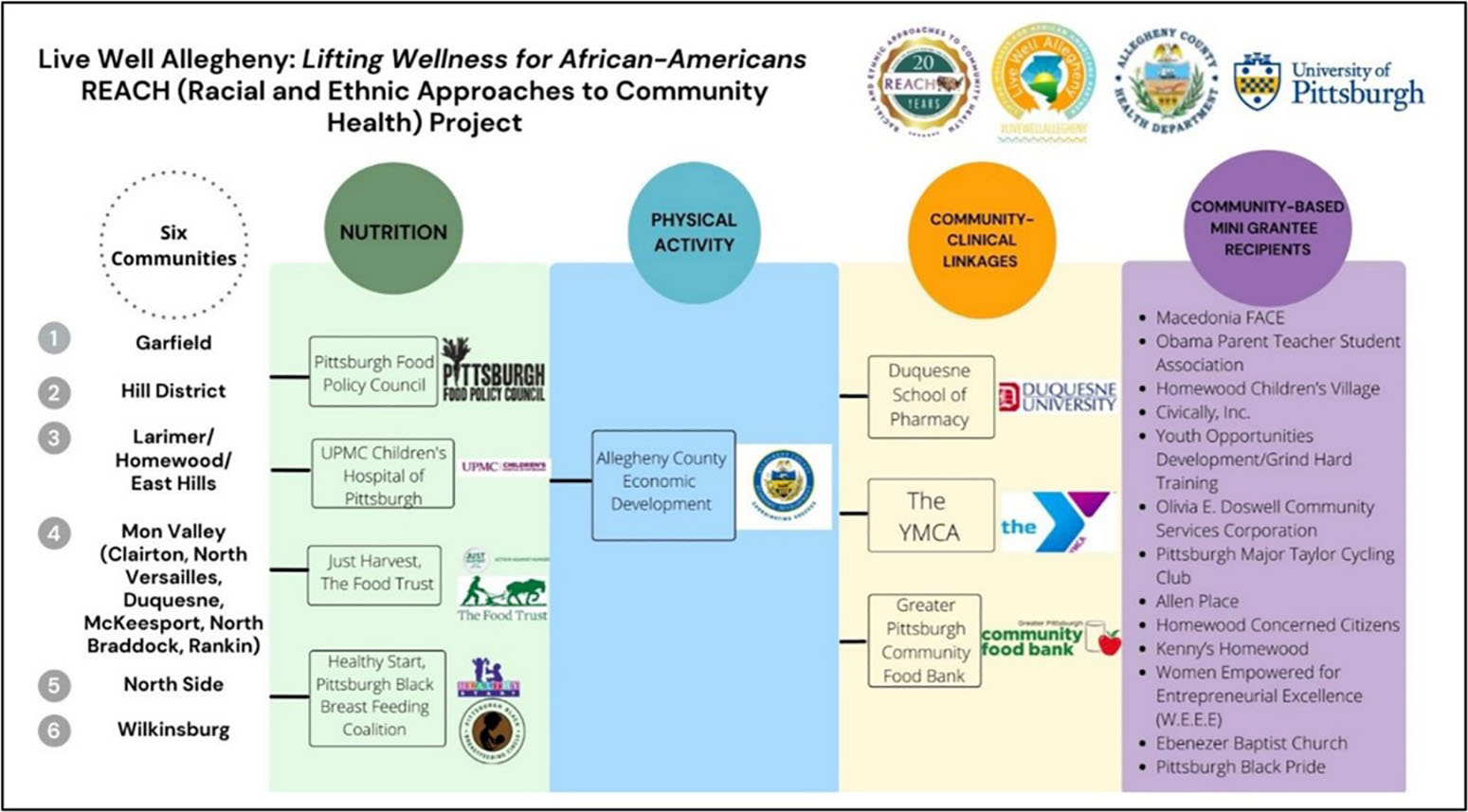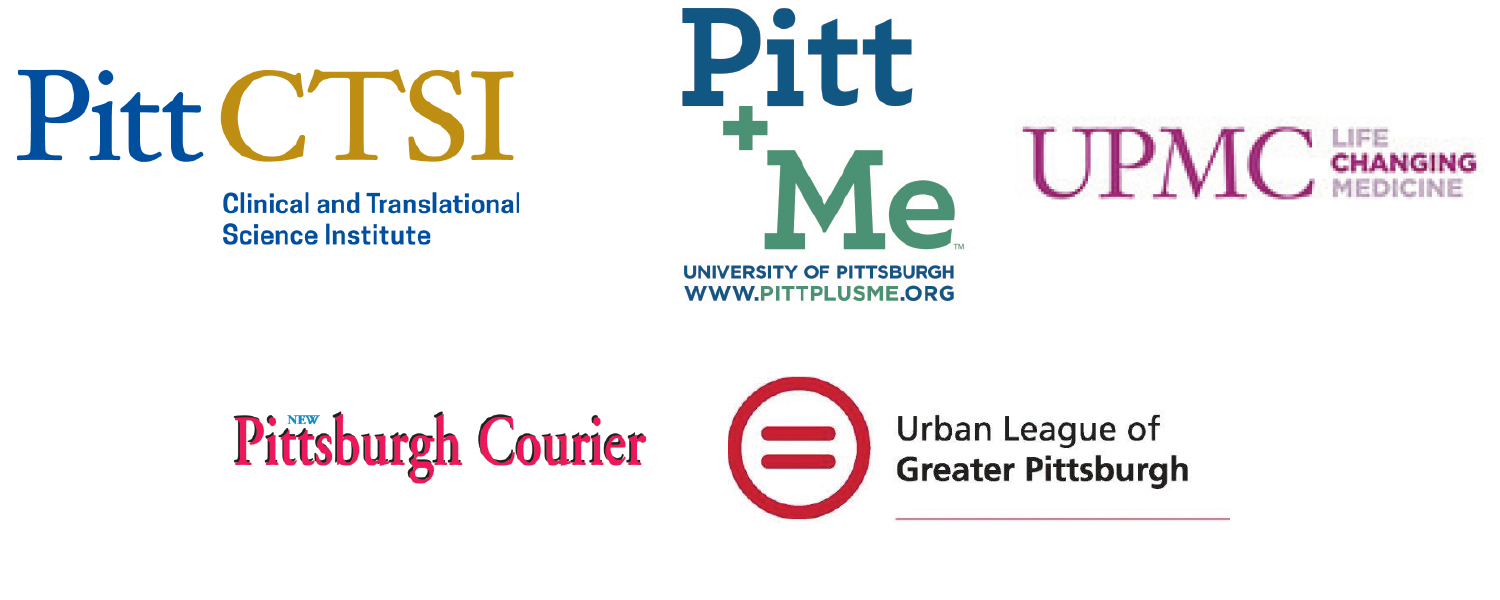DR. TIFFANY L. GARY-WEBB
In 2018, the Allegheny County Health Dept (ACHD) received a Racial and Ethnic Approaches to Community Health (REACH) grant to improve health, reduce chronic disease, and make healthcare more equal in Black communities that have the highest rate of existing health inequities.
A lot of work had been done before the grant was received to prepare for action.
“The work started in 2015 with the Plan for a Healthier Allegheny County,” says University of Pittsburgh’s Dr. Tiffany L. Gary-Webb, Associate Dean for DEI, Professor in Epidemiology, and the Associate Director for Pitt’s Center for Health Equity. “It continued for the next three years with a food access and physical activity pilot program.”
It also included Dr. Gary-Webb working with ACHD to raise awareness about trends in the county’s racial health disparities in chronic disease.

Graphic courtesy of ArcGIS StoryMaps
The 2018 REACH grant funded the formation of the Live Well Allegheny (LWA) REACH Coalition. Directed by Dr. Gary-Webb and a leadership team, the coalition was made up of partners — many that had worked together before. They included organizations like Pitt, Just Harvest, the Food Trust, the Greater Pittsburgh Community Food Bank, Healthy Start, the Black Breastfeeding Circle, and others.
The coalition began meeting regularly, completed anti-racist training, and developed a mission statement about dismantling racist systems and working together to uplift undeserved communities.
LWA REACH implemented events in three areas: Nutrition, physical activity, and community-clinical linkages. “For example, our partners ramped up neighborhood farmers’ markets for affordable fresh produce that could be purchased with EBT/food stamps,” Dr. Gary-Webb explains. “The Pittsburgh Food Policy Council worked in the Pittsburgh Public Schools to create a policy to source local, healthier food.”
Likewise with physical activity. “We teamed up with Allegheny County Economic Development to work with communities on the built environment,” Dr. Gary-Webb continues. “Examples include fixing crumbling sidewalks, bike lanes and trails through community design projects.”
The coalition featured community-clinical links between Duquesne School of Pharmacy, the UPMC Children’s Hospital, YMCA, and the Greater Pittsburgh Food Bank. “These links resulted in neighborhood health and food security screenings; referrals for primary care; blood pressure management and diabetes prevention and management; and flu, COVID, and other vaccinations,” says Dr. Gary-Webb.
These are just a few of the many examples of LWA REACH’s use of grant money to make meaningful changes directly in priority neighborhoods. “We even provided mini project grants to neighborhood organizations like the Obama PTSA, Macedonia FACE, Allen Place, Ebenezer Baptist Church, and Pittsburgh Black Pride,” Dr. Gary-Webb adds.
Throughout the five-year commitment, LWA REACH tracked and reported its progress, as well as short-, intermediate-, and long-term outcomes, to the CDC. The results were so successful, the coalition has received another five-year grant to continue its work through 2028.
While Dr. Gary-Webb has stepped down from the coalition (to concentrate more fully on other health equity-related initiatives), she’s proud of the first round of progress.
“This was a concerted effort with unapologetic funding from the federal government for communities that suffer most from health disparities,” she says. “Pittsburgh needs to be more progressive about taking action to address health disparities, especially when you compare our region to similar areas of the country. LWA REACH is doing that — and serving as an example to other REACH cities, especially in our anti-racism work (which the CDC has recognized) and our ability to collaborate so well on behalf of citizens who suffer most from health inequities.”
